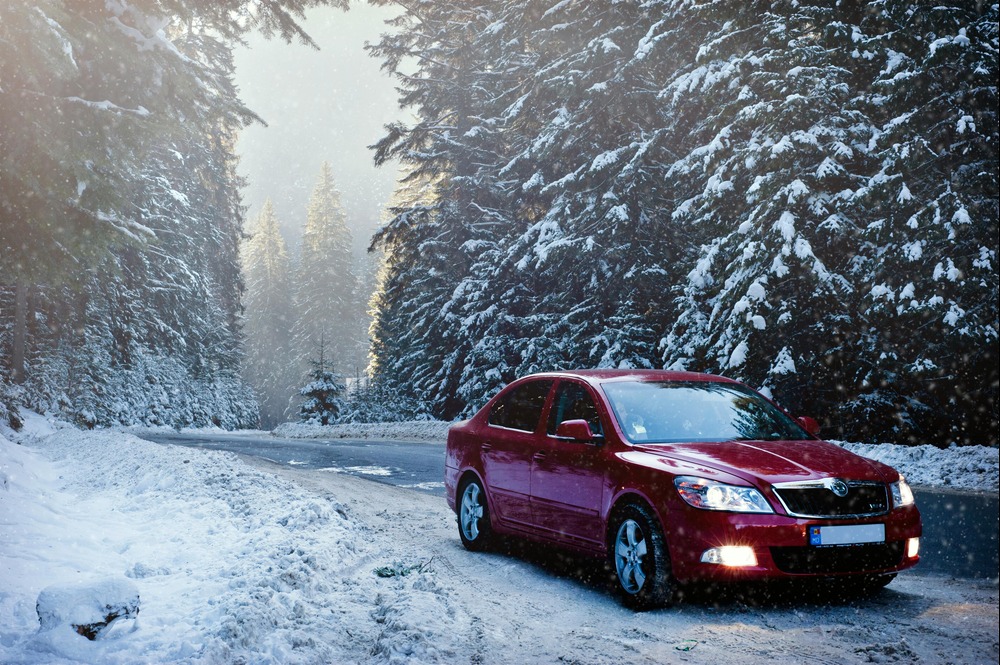Protecting Your Vehicle from Klamath County’s Winter Pests
—
October 28th, 2025

Don't let Klamath County's cold weather drive rodents into your vehicle's engine
Living in Klamath Falls means we get the best of all worlds. We have those 300+ days of sunshine to explore the rugged history of Lava Beds National Monument or take a beautiful, crisp walk along the Link River Nature Trail. We spend our warm, dry summers enjoying Moore Park or getting the boat out on the water.
But as any resident of Klamath County knows, our high desert climate is one of four distinct seasons. And when the landscape shifts from summer to fall, winter is right behind it.
We’re not just talking about a little chill. We’re talking about an average of 38.5 inches of snowfall and average lows that settle in around 22°F. When this cold snap hits, we all retreat indoors. The problem is, we’re not the only ones.
This is the time of year when Klamath County's winter pests—mice, rats, squirrels, and even marmots—begin their desperate search for shelter. And to them, your parked RV, your trailered boat, or the classic car tucked away for the season looks like a five-star hotel.
The High Cost of an Unwanted Tenant
A single mouse can cause thousands of dollars in damage. It’s not just that they’re gross; they are actively destructive.
When a rodent finds its way into your vehicle, it’s looking for two things: nesting material and food. That wrapper you forgot under the seat? That’s a feast. The foam in your seats and the insulation around your wiring? That’s the perfect, fluffy material to build a nest.
The real danger is in the wiring. Rodents' teeth never stop growing, so they chew constantly to file them down. Modern vehicles use soy-based wire insulation, which is apparently delicious to them. They will chew through critical wiring harnesses, fuel lines, and sensor cables.
Come spring, you might not just find a disgusting mess—you might find a vehicle that won't start, has critical electrical faults, or is a potential fire hazard.
Why Your Driveway Isn't as Safe as You Think
Many of us in the 97603 zip code have some extra space, and it’s tempting to just park the RV in the side yard, throw a tarp over the boat, and call it good. Unfortunately, this is an open invitation. A tarp provides warmth and cover, making it more attractive to pests.If you must store your vehicle at home, you need to be vigilant:
- Deep Clean: Remove every single crumb of food, every wrapper, and every empty can. Vacuum thoroughly.
- Block Entrances: Go to the hardware store and buy coarse steel wool. Shove it tightly into your exhaust pipe(s) and any visible air intakes. (Just don't forget to remove it in the spring!)
- Use Deterrents: Many locals swear by peppermint oil-soaked cotton balls, or commercially available rodent repellent packets. Place them in the engine bay (away from belts), in the cabin, and in storage compartments.
Even with these steps, it’s a gamble. You’re fighting a nightly battle against a very determined, very cold pest.
The Secure Solution: A Fortress for Your Investment
The single most effective way to protect your boat, RV, or vehicle is to store it in a secure, professional facility. The primary value isn't just "getting it out of the driveway"—it's about putting a physical, professional barrier between your investment and the pests.
For those of us in Klamath Falls, a great example is Best Homes Storage, located right at 5890 Washburn Way. They specialize in the exact kind of storage we need for this problem, offering a variety of Boat, RV, Vehicle & Self-Storage (Non-Climate) Options.
Here’s why this is a superior solution: While these are non-climate units, the security is the key. The entire facility is fully fenced and well-lit. Access is restricted by an electronic gate with controlled access, and the property is monitored by 24-hour video surveillance.
This multi-layered security system does what a tarp in your driveway can't: it creates a clean, managed, and difficult-to-breach perimeter. It’s far less likely that a mouse will even make it onto the property, let alone into your vehicle. You can get a secure outdoor parking space for a large RV or a fully enclosed, drive-up unit for a boat or classic car.
Don't let your investment—the one that brings you so much joy during our beautiful summers—become a winter motel for destructive rodents. When the temperatures drop, get it cleaned, prepped, and secured. That way, when those 85°F days return, you can be sure it's ready to go.
